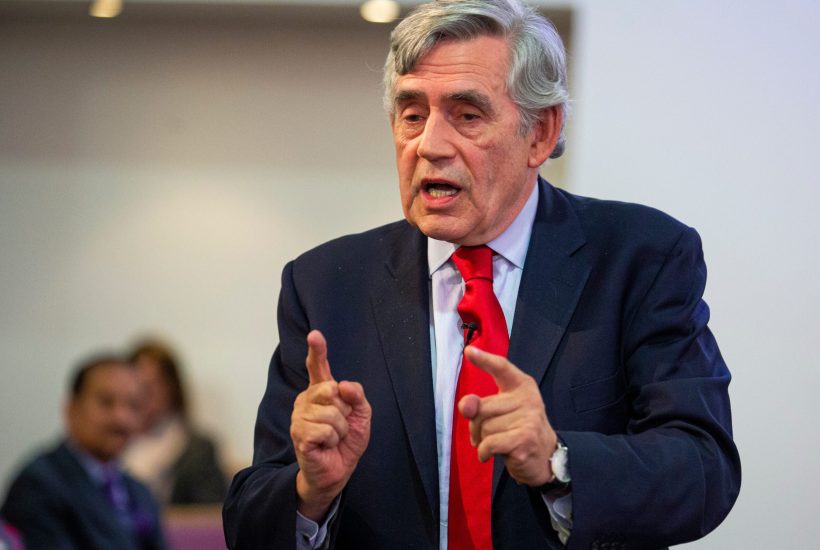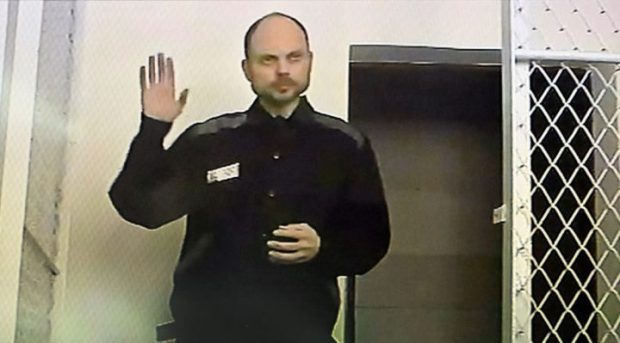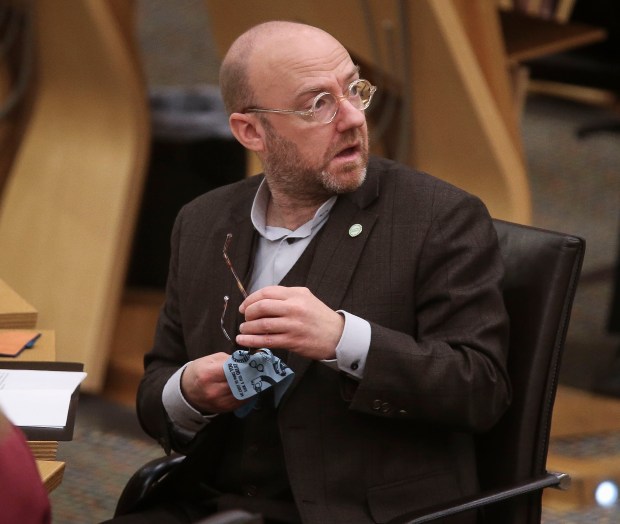As he blasts his way through the remaining support beams of the UK constitution, Gordon Brown is doing more to deliver Scottish independence than the SNP. The former Prime Minister is reportedly poised to recommend that Labour adopt ‘devo max’ as a policy, which would see the SNP-run Scottish parliament handed yet another tranche of powers. Only defence and foreign policy would remain in the hands of Westminster: everything else would be at the whim of Nicola Sturgeon.
The theory is that by increasing the powers of Holyrood, the Scots’ appetite for independence will be sated. But is no evidence for this, and 23 years of evidence against it. From the opening of the Scottish parliament in 1999, it took just eight years for the SNP to gain control of the institution and its grip has remained iron tight ever since.
The Tories warned devolution was a historic error. So when they returned to office in 2010, they naturally set about entrenching it. In 2012, they not only handed Holyrood more powers, but signed up to a referendum on dissolving the Union. More powers were transferred to Edinburgh in 2016. And obviously that was the last we heard of that Scottish independence business.
The definition of madness is repeating the same actions and expecting different outcomes. Except when it comes to Scotland, where it’s the official policy of both Labour and the Conservatives. Johnson and Starmer are more than capable of damaging the Union all by themselves and, therefore, a plea: please, for the love of God and the wee man in the moon, stop listening to Gordon Brown.
Brown was one of the architects of devolution, a policy sold in Labour’s 1997 manifesto with the promise: ‘the Union will be strengthened and the threat of separatism removed’. Instead, this grand design has given separatism its best chance in 300 years. While the Thane of North Queensferry can’t bring himself to confront this fact, neither can he resist the urge to tinker with the blueprint some more.
Brown is an implacable meddler, but more than that he is serially wrong. The more his policies are shown to be an abject failure, the more extravagantly he doubles down on them. What he proposes is that the UK be reduced to nothing more than shared custody of some embassies and the odd Eurofighter.
It should hardly have to be pointed out what a bad move ‘devo max’ would be. For one, it is an almost comically Londonese idea, so Keir Starmer will sign up to it and the commentariat will hail him as a visionary when he does so. Only people such as these could believe a promise to devolve corporation tax and drugs policy will be the clincher for Scottish voters toying with independence. ‘Yes, the SNP is promising you hope, self-determination, national rebirth and a place in the history books, but wouldn’t you rather have power over capital allowance deductions?’
Both the Tories and Labour are making the same mistakes on Scotland as they made on Brexit. Tories think politics is about history; Labour thinks politics is about economics. Politics is in fact about culture, values and identity, and none of those things can be fought with a graph or a white paper. It doesn’t help that the constitutional debate in Scotland, such as it is, takes place safely within the Unionism Exclusion Zone that is ‘devothink’. Devothink is how devocrats think, devocrats being not only those who work directly for devolved institutions but those funded by them, those whose careers or status relies indirectly on these institutions, or those ideologically committed to devolution either as an end in itself or as a stepping stone to independence.
Unsurprisingly, then, devothink seldom involves thinking about devolution itself, and mostly muses on what must happen next. The answer is, inevitably, more devolution. Even when flaws in the system are acknowledged, the remedy is, of course, more devolution. Scotland’s political and media class talk about a demonstrably failed policy the way uppity undergraduates talk about communism: real devolution has never been tried.
Devolution has not settled the constitutional question: it has made it the central concern of Scottish politics. It has not closed the ‘democratic deficit’, but embodied it. Holyrood is more tribal than Westminster, St Andrew’s House arguably less transparent than Whitehall, and SNP ministers less accountable to parliament than their Tory counterparts. Where social and economic policy outcomes have improved, most have done so only marginally and many more indicators have stalled or reversed. This is the legacy of devolution and it has to be reckoned with. Instead of devo max or devothink, what Scotland needs is a heavy dose of devoscepticism.
Got something to add? Join the discussion and comment below.
Get 10 issues for just $10
Subscribe to The Spectator Australia today for the next 10 magazine issues, plus full online access, for just $10.




















Comments
Don't miss out
Join the conversation with other Spectator Australia readers. Subscribe to leave a comment.
SUBSCRIBEAlready a subscriber? Log in